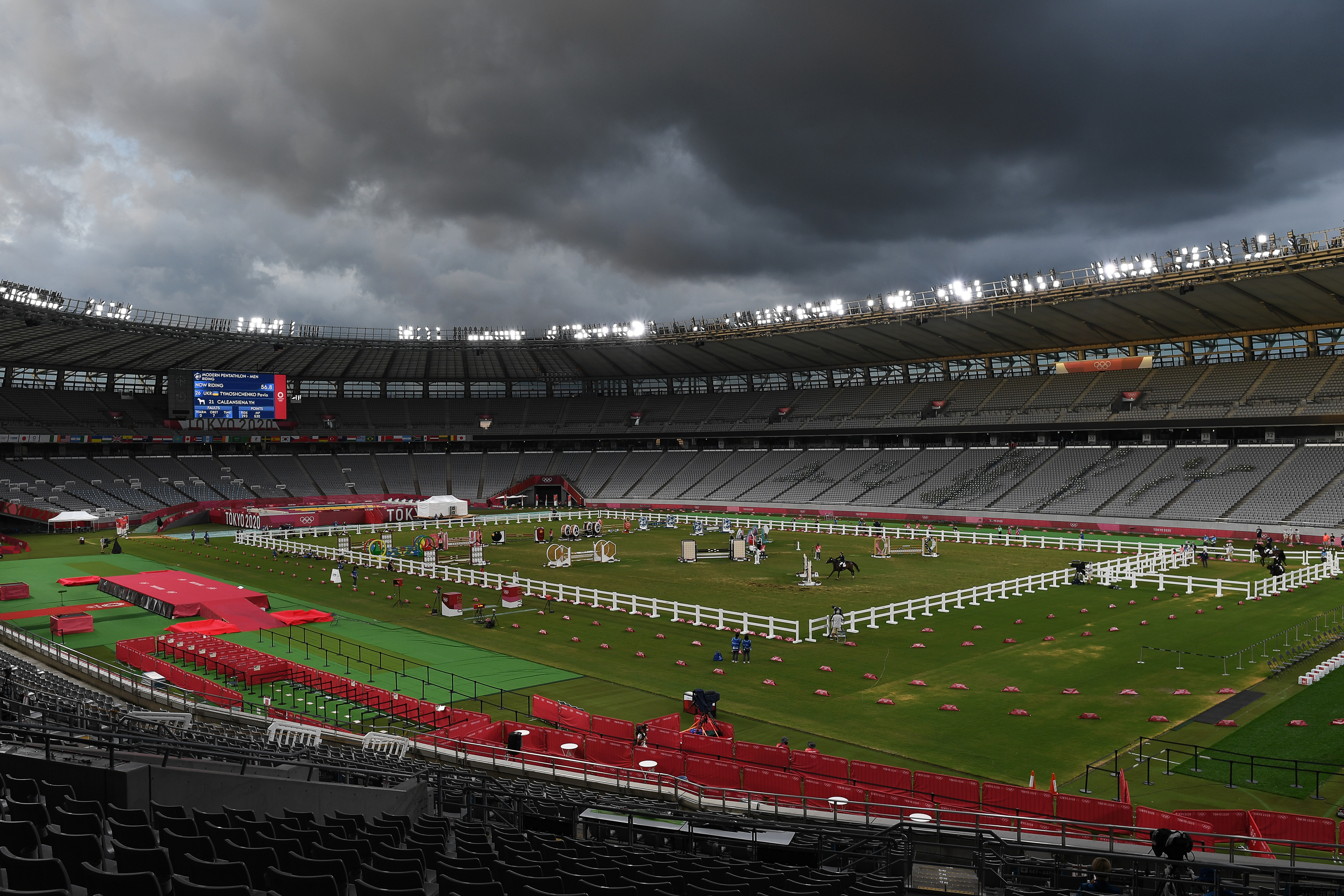The sport of modern pentathlon, a niche outlier at the Olympics, is getting rid of its horse competitions after the Paris Games and bringing in “American Ninja Warrior”-style obstacle courses for the Los Angeles Olympics in 2028.
It’s a quirky sport which was originally modeled on the exploits of a dashing soldier on horseback behind enemy lines and debuted at the 1912 Olympics. Athletes and officials have been feuding ahead of the Paris Olympic competition starting Thursday.
Depending on who you ask, swapping horses for obstacles is either an exciting, much-needed modernization to keep the sport alive, or a misguided power grab that will drive away top competitors in an already small event.
Opposed to the change but fed up with the bitter rifts in his sport, Britain’s Joe Choong, gold medalist in Tokyo three years ago, has indicated he’ll likely quit after Paris.
We've got the news you need to know to start your day. Sign up for the First & 4Most morning newsletter — delivered to your inbox daily. >Sign up here.
“I’ve got to have that drive to want to do it. I can’t just do it for for the sake of it,” he told The Associated Press earlier this year. “It’s not going to be the same.”
Pierre de Coubertin, founder of the modern Olympics, invented modern pentathlon in a quest to find the ultimate all-round athlete at the Games. The schedule — running, swimming, horse-riding, shooting and fencing — was based on a cavalry officer’s skill set. The first Olympic competition took six days.
When modern pentathlon joined the Olympic program in 1912, it was just two years before World War I showed just how obsolete horses were in modern warfare. Now in Paris — de Coubertin’s birthplace — his sport will change forever.
It began with a distressed horse and a coach who lost control.
When Kim Raisner leaned over a fence at the Tokyo Olympics to strike the horse Saint Boy, video footage went viral outside the small world of modern pentathlon. Raisner was coaching Germany’s Annika Schleu, whose gold-medal chances disappeared when Saint Boy refused to cooperate.
Athletes have to ride unfamiliar horses, and Schleu was drawn with Saint Boy, who had already refused to work with a Russian competitor.
Under pressure from the International Olympic Committee to avoid a repeat, modern pentathlon soon announced it would replace equestrian. That decision seemed timely as other equestrian events faced their own horse welfare scandals in Paris.
The format in Paris packs the five disciplines into 90 minutes of competition time — just over two hours including breaks — for men’s finals Saturday and the women’s event Sunday. It’s hosted in the grounds of the Palace of Versailles, once home to French royalty.
Modern pentathlon’s governing body, the UIPM, briefly considered cross-country cycling — which was reportedly considered too similar to triathlon — before opting for obstacle courses similar to those on the popular television show “American Ninja Warrior” for 2028.
The UIPM believes it will make “a perfect product for the TV audience,” general secretary Shiny Fang said Wednesday, and that it can diversify a sport dominated by European countries. The Egyptian team shares one horse — “poor Charlie” — for training, former athlete Yasser Hefny told a UIPM-hosted event last month.
Choong says he hasn’t seen much sign modern pentathlon is attracting new athletes since announcing its plans in 2022.
Instead, modern pentathlon should be trying to make horse-riding more accessible, he argues. Choong said he’s never owned a horse and instead trains at a riding school in rural England to work with unfamiliar horses.
“I’m really proud of my ability as a rider because I’m not someone who’s been in a saddle since I was three,” he said. “I’ve never had to pay for food for the horses. I’ve never had to pay the cost of owning a horse because pentathlon is the most accessible way to go riding. All you need to do is pay for the lessons.”
Even supporters of the change think it will be an emotional moment when the stable doors slam shut for the last time at the Paris Olympics.
“It’s very sad to say goodbye to horse-riding,” Egyptian athlete Malak Ismail said last month. “I love horses too much, but I’m really so excited to try the obstacles.”
___
Graham Dunbar in Paris contributed to this report.





